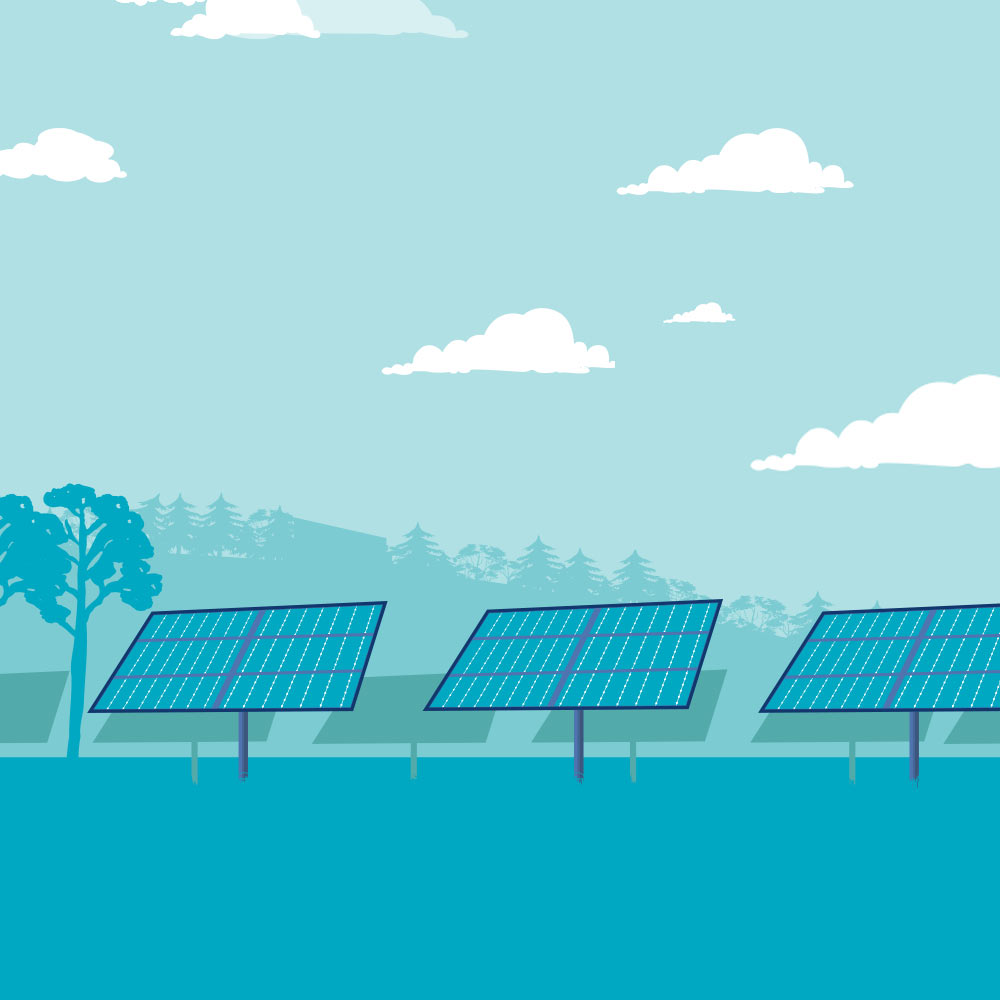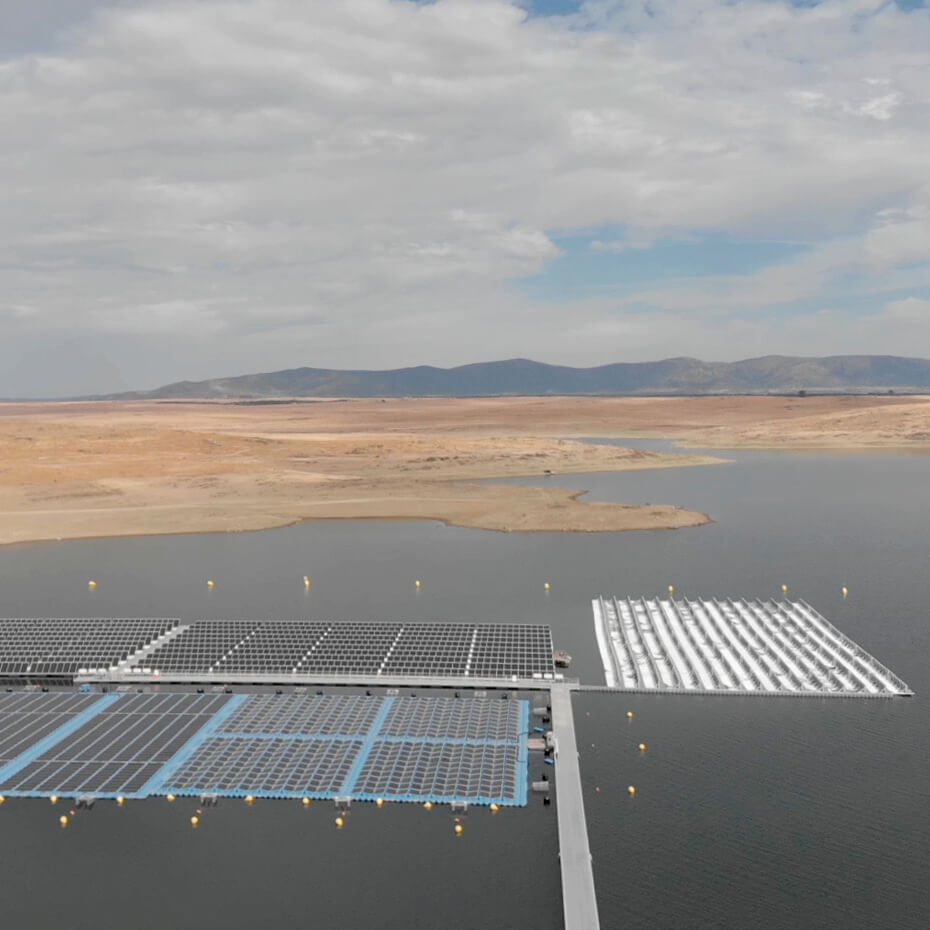Kirigami-inspired solar panels
The ancient art is inspiring the design of solar cells so they can change shape to catch the sun
Floating solar panels are emerging as an alternative for generating clean energy with additional advantages, as proven by the Sierra Brava plant in Spain.
Just looking at some basic figures is enough to understand that the future of renewable energy is bright. Over the past ten years, the cost of solar panels has decreased by 91%, and it is now cheaper to build renewable energy plants than coal-fired power plants in many parts of the world, especially considering environmental costs. Renewable energy consumption data is equally encouraging: in the EU, it already accounts for 37.5% of the total electricity consumption. Among the various renewable energies, including wind, hydro, and photovoltaic, the one that has grown the most is photovoltaic: while it only represented 1% of the total in 2008, it now exceeds 15%. It can be said that renewable energy has long ceased to be an alternative and has become conventional. And that poses new challenges for green power.
One of the main challenges is location: where can the growing number of wind turbines and solar panels be placed? Although the land area required for these types of installations is relatively small and often compatible with traditional land uses, other options besides inland territories are particularly suitable for countries with limited available land. In the case of wind energy, one of the options with the greatest potential is offshore wind turbines installed in the sea near the coast. In the case of solar panels, an alternative could be linking them to another renewable energy source: hydroelectric power. Floating photovoltaics technology, usually installed in water reservoirs, offers undeniable benefits. The projects already implemented confirmed this, and now a recent study published in the scientific journal Nature Sustainability corroborates its benefits.

Colloquially known as "floatovoltaics," these solar panels work identically to traditional ones, i.e., converting sunlight into electricity, but with some logistical peculiarities. The main difference is that instead of fixed supports like those in conventional solar plants, they are anchored to the bottom of water reservoirs like barges. According to the Nature Sustainability study, this entails some additional benefits:
Apart from these factors, one of the advantages of this approach is called hybridization, which means that the photovoltaic energy generated is channeled through the existing connections in hydroelectric installations. In addition, it releases land for farming, forests or construction. That being said, the installation costs of floating photovoltaic energy are higher than those of panels installed on land, so terrestrial and floating solar energy are destined to coexist in the near future; their implementation will depend on multiple factors, such as available land.

This approach to solar energy is relatively new. In fact, the first floating plant prototype was installed in the United States in 2008. Today, there are some examples of advanced floating photovoltaic energy with a direct connection to the grid. The Sierra Brava reservoir in Zorita, Cáceres, hosts the first floating photovoltaic plant connected to the electrical grid in Spain.
This area, which once housed a nuclear power plant, now produces 1125 MWp of electricity thanks to 600 photovoltaic modules covering 12,000 m2 of surface area. An interesting aspect of the solar panels used is that they utilize bifacial technology, which means they can harness the light energy received from the sun on both sides, multiplying the impact of reflected light on the water. Another peculiar feature of this project is the installation of nest boxes and floating islands to promote bird nesting along with the solar panel infrastructure.
If you want to delve into floating solar energy, don't miss reading this story that explains all the details of this promising modality of photovoltaic energy as it has been implemented in Sierra Brava. And if you want to learn more about floating wind energy, check out this news article on wind pyramids, a striking reinvention of offshore wind turbines.
Sources:
All fields are mandatory.
Read the most discussed articles
{{CommentsCount}} Comments
Currently no one has commented on the news.
Be the first to leave a comment.
{{firstLevelComment.Name}}
{{firstLevelComment.DaysAgo}} days ago
{{firstLevelComment.Text}}
Answer{{secondLevelComment.Name}}
{{secondLevelComment.DaysAgo}} days ago
{{secondLevelComment.Text}}